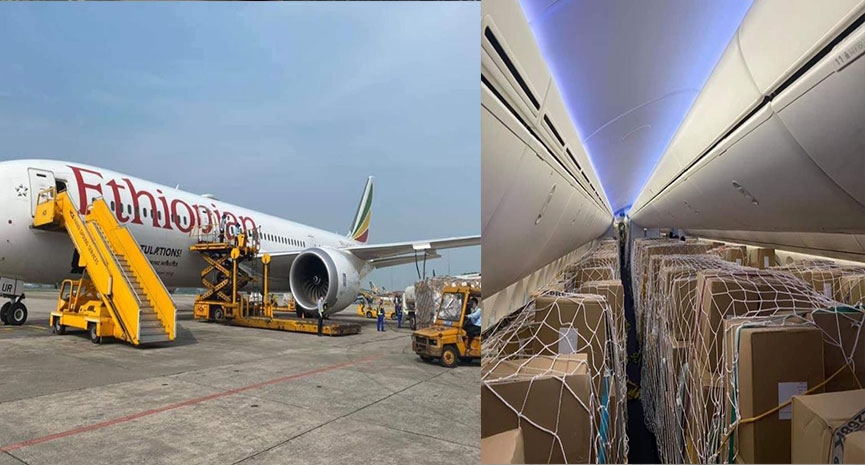Ethiopian Airlines uplifts close to 40K kgs from Hanoi using B787-9; to up frequency
The carrier has recently flown from Hanoi, Vietnam uplifting 40,528 kilogrammes of shipment in B787-9 aircraft.

May 13, 2020: Ethiopian Airlines has left no stone unturned in proving its efficiency as one of the dynamic airlines to operate during the pandemic. The carrier has recently flown from Hanoi, Vietnam to Addis Ababa uplifting 40,528 kilogrammes of shipment in a B787-9 aircraft.
The aircraft carried general cargo and essential supplies in its belly and cabin with plans to increase frequency to its weekly service.
Starting April 17, Ethiopian Cargo and Logistics Services has started its three times weekly service to Bangkok to transport essential supplies and masks. On its first flight, the passenger freighter carried 23 tonnes using its belly and cabin space.
Ethiopian Cargo started a weekly freighter service to Bangkok, Thailand, and Hanoi in August 2019. It was supplemented with the daily belly-hold cargo capacity on passenger aircraft on these routes. The freighter flights link Bangkok and Hanoi to Europe, Asia, the Middle East, and the Americas.
Recently, the UN World Food Programme (WFP) has selected Addis Ababa as a humanitarian shipment hub for Africa to distribute medical supplies with Ethiopian Cargo. The first cargo flight arrived in Ethiopia on April 13 from the United Arab Emirates (UAE) loaded with aprons, face shields, gloves, goggles, gowns, masks and thermometers procured by the World Health Organization (WHO) for distribution to 32 African countries.
Last week, Ethiopian Cargo revealed that the reconfiguration of 5 Q400s, 4 A350s, and 4 787s is in pipeline. Ethiopian Airlines has completed the reconfiguration of four B777-300ERs, three B737-800s, and two B767-300s to boost its capacity in response to the growing demand for cargo shipment. While Q400s, which can carry between 5 - 8 tonnes will be used to deliver medical supplies to neighbouring countries like Juba, Mogadishu, and Djibouti.
Meanwhile, the carrier is prepared to come to the rescue of stricken carriers around Africa, even as the airline itself deals with its own mounting losses and grounded planes due to the Covid-19 pandemic.

